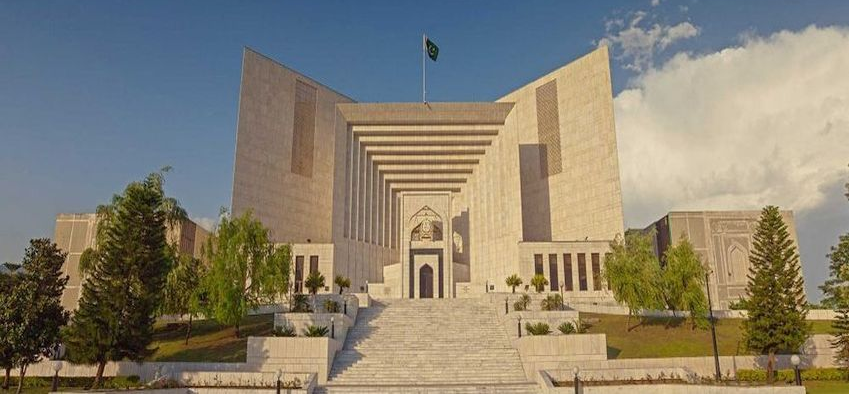Procedural Timelines are of Paramount Importance and Failure to comply with Statutory Limits cannot be Condoned --- Supreme Court of Pakistan
Islamabad 28-09-2024: The Supreme Court of Pakistan, in a recent decision, dismissed a civil petition challenging compensation for land acquisition by the Government of Khyber Pakhtunkhwa. The petition, filed by Fazli Akbar Khan and others, was rejected on the grounds of being time-barred and non-maintainable due to procedural lapses and undue delays in pursuing legal remedies.
The case, titled [Civil Petition No. 14-P/2015], arose from a dispute over the compensation awarded for 12 kanals of land acquired for the playground of the Government High Secondary School in Manga Tehsil, District Mardan. The Petitioners had initially filed a Reference Petition under Sections 18, 30, 31, and 34 of the Khyber Pakhtunkhwa Land Acquisition Act, 1894, seeking an enhancement of the awarded compensation. The land acquisition was made under Award No. 63/4/L.A., dated October 11, 2010, at a rate of PKR 6,156/- per marla.
The Collector had rejected the Reference Petition under Section 18 for being time-barred but referred it to the Referee Court under Sections 30 and 31. During the proceedings before the Referee Court, it was noted that the reference could not be maintained under Section 18 due to time limitations. Consequently, on April 22, 2014, the Referee Court dismissed the petition. Instead of challenging the Referee Court’s order, the Petitioners moved to the Peshawar High Court against the Collector’s earlier order dated November 2, 2011, resulting in further complications and delays.
In its judgment, the Supreme Court of Pakistan reiterated that under Section 18 of the Land Acquisition Act, 1894, a person interested in contesting the award must file an application within six weeks of the award announcement or within six months from the date of the Collector’s award, whichever period expires first. Any delay beyond this period renders the reference non-maintainable. The Court emphasized that procedural timelines are of paramount importance and failure to comply with statutory limits cannot be condoned.
The Petitioners contended that they were unaware of the award until August 2011, and filed the Reference Petition on October 26, 2011. However, the Supreme Court of Pakistan found their arguments unconvincing, highlighting that the Petitioners had participated in the acquisition proceedings and remained inactive for 33 months before filing the Writ Petition in the High Court.
Referring to several precedents, including Government of West Pakistan Vs. Arbab Haji Ahmed Ali Jan (PLD 1981 SC 516) and Gul Zaman Vs. Deputy Commissioner/Collector Gwadar (2024 SCMR 481), the Court reiterated that a Referee Court’s jurisdiction is strictly confined to the specific terms of reference made by the Collector. The Court cannot go beyond those terms or entertain matters outside the prescribed statutory limits.
The Supreme Court of Pakistan concluded that the Petitioners’ application was an afterthought aimed at obtaining a higher compensation rate and upheld the High Court’s decision, which had earlier dismissed the Writ Petition as time-barred and squarely hit by the doctrine of laches.
In light of the above, the Supreme Court of Pakistan refused leave to appeal and dismissed the petition, reaffirming the importance of adhering to procedural laws and statutory time limits in land acquisition cases.
Powered by Froala Editor








